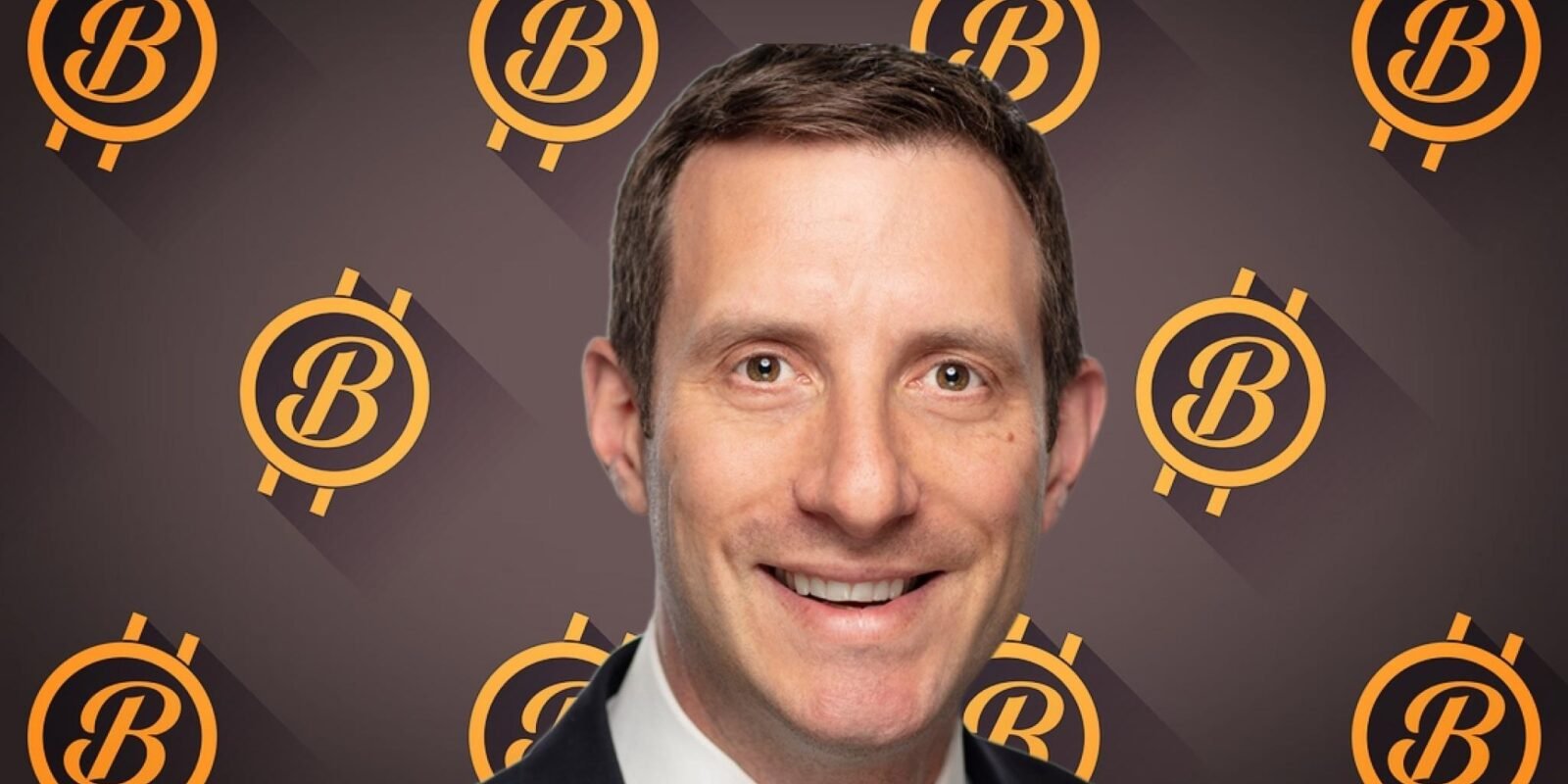EXCLUSIVE: Grayscale’s Dave LaValle Counts ETFs Among The ‘Greatest Financial Innovations Of Our Generation’

Dave LaValle is the Global Head of ETFs for Grayscale Investments, a U.S.-based digital currency asset management company and a Digital Currency Group (DCG) subsidiary founded in 2013.
Grayscale says it is the world's largest crypto assets manager, and based on last week's decision by the SEC not to pursue any further objections to Grayscale's spot Bitcoin (CRYPTO: BTC) ETF application, Grayscale is closer than ever to launching a Bitcoin ETF based on the Grayscale Bitcoin Trust (GBTC). The GBTC holds 643,572 BTC, about 3% of all the Bitcoin available, worth greater than $18 billion at total market value.
News of the Grayscale spot Bitcoin ETF closed the gap of the Bitcoin held in GBTC, which was discounted 30% of market value and has risen to just 14% below market value.
Benzinga spoke with LaValle concerning the much-anticipated spot Bitcoin ETF and Grayscale's application for a similar spot Ethereum (CRYPTO: ETH) ETF based on the Grayscale Ethereum Trust (ETHE). The trust holds under $5 billion in Ethereum and says it is the largest Ethereum-based fund in the world.
See Also: Can Bitcoin Spot ETFs Unleash A Trillion-Dollar Crypto Boom? Here's What Data Shows
When asked about what led LaValle to his work spearheading Grayscale's ETF efforts, he said: "When I was at NASDAQ, I had the first opportunity to think about the potential for a Bitcoin ETF to come to market. So when I got the phone call from Michael Sonnenshein [CEO of Grayscale], I thought about two financial innovations coming together — one that I knew a lot about and one that I had conviction about but didn't know a lot about it, so it was the perfect opportunity for me to leverage Grayscale's expertise in digital assets.
"I have a somewhat unique experience, having sat on every leg of the ETF stool — indexing, exchanges, regulatory engagement and certainly on the asset management side. It has offered a crescendo for us to push forward and challenge the norm and do what ETFs have been doing for a very long time, which is to bring new investments to the broadest range of investors in a battle-tested transparent wrapper, that's the ETF."
LaValle began his career on the stock exchange floors, trading several different products, including cash, equities, structure, notes, listed derivatives, closed-end funds and ETFs. He moved to Nasdaq to start its ETF listing business, which included regulatory engagement, building, trading market structure and innovating in the listing, liquidity, and trading space.
He then went to State Street Global Advisors, where he ran a segment of the U.S. ETF business, leading its Capital Markets team for the U.S. markets. Most recently, LaValle was the CEO of Alerian, a global indexing firm.
"I have lived with the growth of the exchange-traded fund marketplace, and it is one of the greatest financial innovations of our generation," he said. "I truly believe in how it has transformed the ability for all investors, but in particular, retail investors, to have access to the broadest range of investment opportunities."
LaValle believes that combining the innovations of an ETF wrapper with a solid digital currency like Bitcoin will lead to investing efficiencies, which will save money for investors and offer greater transparency and tax benefits.
"ETFs have become strong building blocks, for investors, financial advisors and institutions. But obviously, institutions tend to have a higher degree of sophistication when it comes to diligence in their investments and how they want to seek those investments. So, it's really a story about financial innovations for the benefit of financial advisors and retail investors."
Benzinga asked LaValle about the objections to ETFs expressed by self-custody purists who believe "not my keys, not my crypto."
"It's the same thing 'gold bugs' would say between 2005 to 2010. They believe the gold is being lent out, it's rehypothecated, and there isn't any gold in the trust. So, I would say the same thing I said to those gold bugs — GLD might not be the appropriate way for them to seek their gold investment. However, for many people, it is much more realistic to rely on a financial instrument that fits into their portfolios with a great deal of ease and not worry about all of the operational hurdles associated with owning the asset in its own right."
LaValle continued to say, "We're big believers in optionality, and just like there are gold ETFs and gold mining ETFs and then the gold markets and gold futures, we believe there should be optionality for the digital asset ecosystem as well."
When asked if he felt digital asset investments had crossed over into mainstream portfolios at retail and institutional levels, LaValle was widely optimistic that crypto's public perception had grown and matured, achieving a new level of acceptance. Digital assets have become a must-have for investor portfolios, driven by demand and interest at a personal level.
"In the last bull run for digital assets, financial advisors' clients were not just asking for access to digital assets but were acting on their own accord to gain exposure to digital assets. That was a real problem for financial advisors for two reasons — it was a commercial problem because it decreased the assets on their platform. More importantly, it decreased their ability to have a holistic picture of clients' investment profiles."
In part two of the interview, Benzinga will discuss LaValle's views on changing the crypto bear market and the future of multiple digital asset-backed funds.
Meet and engage with transformative Digital Asset and Crypto business leaders and investors at Benzinga's exclusive event: Future of Digital Assets. Brooke Stoddard, vice president of Investor Relations for Grayscale Investments, will speak at the event on Nov. 14 in New York City. Tickets are flying: Get yours!
Read Next: Will A Spot Bitcoin ETF Approval Be The Catalyst For Crypto Summer? Experts Weigh In




